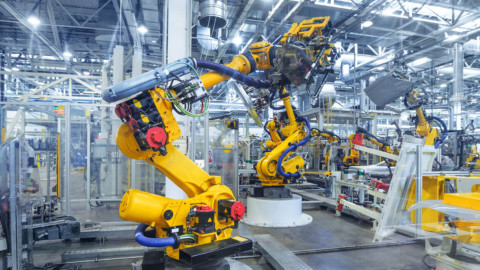Even though it has not been widely covered by the European or U.S. media, Swiss food giant Nestle (OTC: NSRGY) has become embroiled in a scandal similar to that at Volkswagen (OTC: VLKAF). Nestle has run afoul of India’s laws governing food packaging and ingredients in much the same that Volkswagen has violated U.S. air quality regulations.
Maggi, a brand of instant noodles sold by Nestle in India, was found to contain high quantities of lead and the controversial food flavoring monosodium glutamate (MSG) in tests performed for the UP Food and Drug Administration, The Indian Express newspaper reported in May. If the tests are accurate, they mean that Nestle violated Indian law, which bans the use of MSG in pasta and noodles.
The levels of lead in the noodles also violated India’s Food Safety and Standards, which restrict lead levels to 10 parts per million, The Express reported. Maggi Noodles were found to have lead levels of 17.2 parts per million.
Not surprisingly, the scandal has attracted a lot of media attention and gotten Nestle in hot water across India. The nation’s Health Department found Maggi noodles “unfit for consumption” and banned its sale from 1,200 stores, The Express reported. It even led to police investigations of Nestle executives and three movie stars that endorsed the product.
To make matters worse, at least 10 samples of Maggi noodles contained lead levels of 2.5 parts per million, clearly in violation of Indian law. If that was not bad enough, the Food Safety of Standards Authority of India is alleging that Nestle lied to customers by falsely claiming that Maggi did not contain MSG when testing showed that it did.
The Noodle Scandal and the Diesel Scandal
Many observers will see similarities between the diesel scandal at Volkswagen and the noodle scandal at Nestle. Both companies are iconic European brands that operate globally and have a strong reputation for integrity. Yet both treated customers in important markets with contempt and flaunted national laws.
A major difference between the noodle scandal and the diesel scandal is that the noodle scandal has not attracted a great deal of attention in North America. The U.S. media has focused a great deal of attention on the accusations against Volkswagen and has been almost merciless in its reporting on the affair.
Another key difference is that the noodle controversy does not seem to have affected Nestle’s share price, while Volkswagen’s shares have plunged since the news of the diesel debacle appeared. Volkswagen was trading at $187.55 (€167.48) a share on September 17, 2015, a price that fell to $115.98 (€103.27) by October 5, 2015.
In contrast, Nestle’s share price has remained fairly steady since June. Nestle was trading at $74.52 (€66.54) a share on June 4, 2015, and $76.42 (€76.42) a share on October 5, 2015. The noodle controversy has not had that much of an impact on Nestle, possibly because India is a much smaller market than the United States or more likely because American and European media have not reported on it extensively.
Are Nestle and Volkswagen Value Investments?
The scandals at Nestle and Volkswagen will undoubtedly attract the attention of value investors. One classic value investment strategy is to look for an otherwise good company that is attracting negative media attention.
A case can be made that both Volkswagen and Nestle fit that bill. Nestle reported revenues of $99.08 billion (€88.47 billion), an earnings per share (EPS) figure of 4.815 and a net income of $15.4 billion (€13.75 billion) on December 31, 2014, according to YCharts data. It also provided investors with a dividend yield of 2.97%.
Volkswagen reported revenues of $254.7 billion (€227.44 billion), a diluted earnings per share of 25.94 and a net income of $13.01 billion (€11.62 billion) on June 30, 2015. The automaker also paid investors a dividend yield of 4.63%, according to YCharts data. Volkswagen also looks tremendously undervalued right now; YCharts reported that it had a market capitalization of $55.18 billion (€49.27 billion) and an enterprise value of $144.03 billion (€144.03 billion) on October 5, 2015.
It looks as if Volkswagen is currently undervalued right now, but Nestle is not. Volkswagen also seems to have the resources necessary to weather the storm; it reported having $36.28 billion (€32.40 billion) in cash and short-term investments on June 30, 2015.
That means it could have enough money in the bank to pay the costs associated with the scandal. Reuters reported that it would cost Volkswagen around $6.5 billion (€5.8 billion) to fix all the vehicles with software that violates U.S. emissions standards. The company would still have around $29 billion (€25.9 billion) in the bank after paying that bill.
The Real Problem at Volkswagen and Nestle: Ethics
Volkswagen is certainly a value investment from a straight mathematical standpoint, but there is another larger concern that investors must take into account. That concern also affects Nestle, and it is obviously ethics.
The evidence indicates that both Volkswagen and Nestle behaved in a highly unethical matter. Both companies showed contempt for the law and, worse, for their customers and investors.
Both Volkswagen and Nestle deliberately and systematically lied to their customers. A company that lies to customers will also lie to its investors. Investors need to question both companies’ financial data and the claims that they make. In particular, many customers and investors are undoubtedly wondering about some of Volkswagen’s other claims, such as fuel mileage and the reputed capabilities of its electric vehicles.
Both companies also violated government regulations. One has to wonder if they are also violating other regulations such as those governing accounting standards or financial reporting. Does the chicanery extend beyond marketing and programming and into the accounting department? Can sales, revenue and other data be relied upon? Unfortunately, only time will tell if such suspicions are justified.
Therefore the final decision comes down to a value judgment and an investor’s instincts. Investors have to ask themselves: “Do I want to make a profit from a company that behaves in a blatantly illegal and unethical manner?” More importantly, they will also have to ask the all-important question about management: “Can we trust these people to tell the truth?”
Investors will have to make their own judgement here. Perhaps the most important question an investor should ask is: “Do I feel comfortable investing in a company like Nestle or Volkswagen?” If the answer is no, you should trust your gut and sell your shares.











